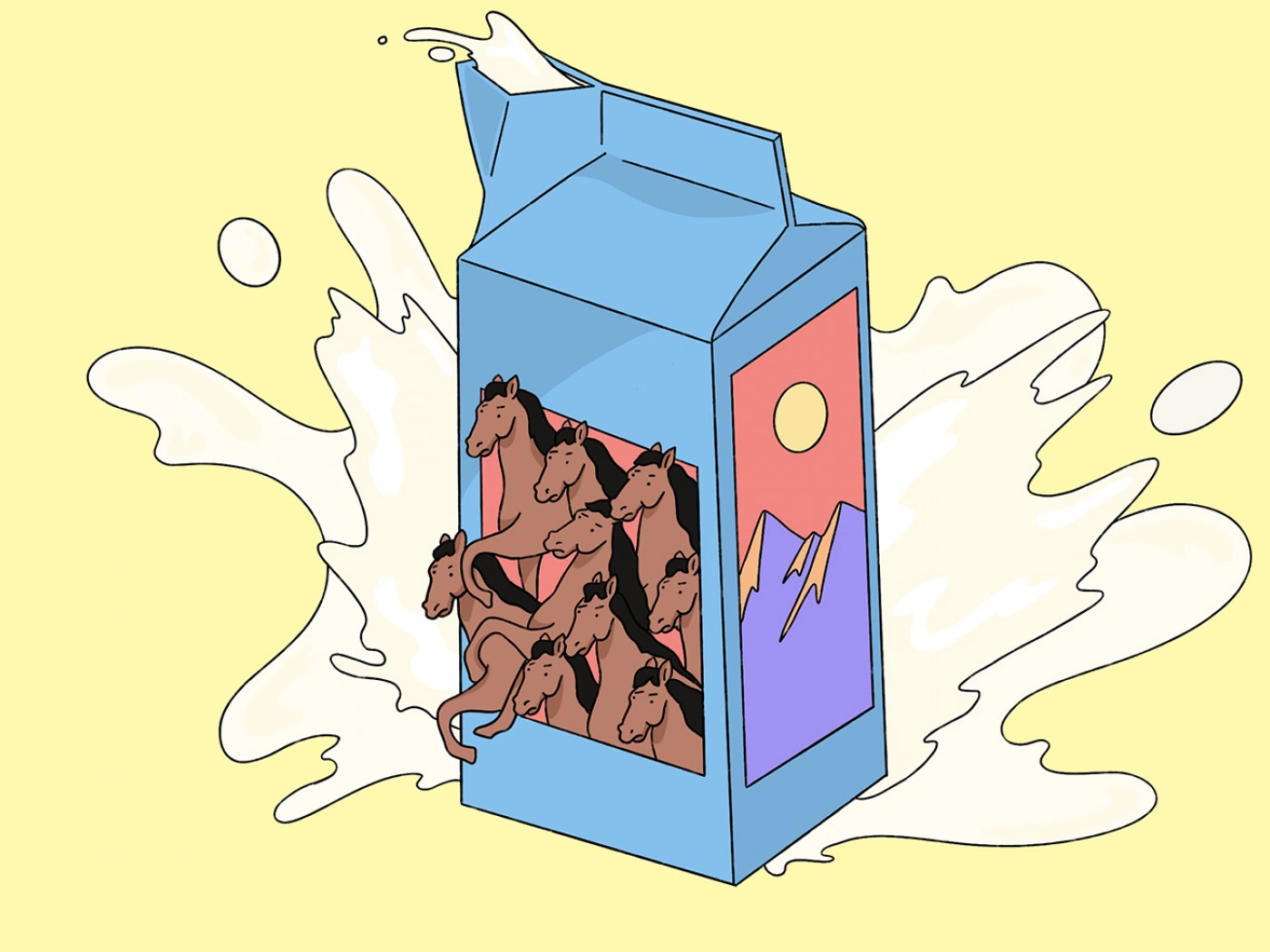
Drinks of the Steppes: Everything You Need to Know About Ayran, Kumis, and Shubat
Kazakhstan’s origin story begins with pastoral nomads who lived in yurts and owned livestock, including camels, cattle, goats, horses, and sheep. Given their active way of life, nomadic Kazakhs were heavily reliant on their livestock’s milk.
Slowly but surely, all the different milk products that the nomads cultivated transformed into traditional Kazakh drinks that with them, carry generations of national history and fermentation-derived wonders.
Ayran
Ayran is a fermented milk product that is typically made by adding salt and water to yogurt. Meanwhile, in an industrial setting, it is common to first add water to milk (skim, low-fat, or whole) and then carry out the fermentation afterward. Not exclusive to Kazakhs, this drink is a staple among many cultures of Turkic origins. Furthermore, Ayran is present in Iran where it is referred to as Doogh in Persian, as well as India where it is known as Lassi.
Ayran, like all fermented products, is rich in probiotic bacteria that benefit the gut microbiome and improve the immune system. Moreover, depending on fat content, a glass of Ayran is not only low in calories, but also contains 135 mg of potassium.
In the body, potassium works in conjunction with sodium to maintain a stable equilibrium. Potassium’s function becomes crucial when sodium levels are elevated given that excess sodium lowers blood vessels’ ability to contract and holds excess fluid in the body, thereby increasing the risk of high blood pressure (hypertension) and stroke. To prevent these potentially fatal consequences, potassium alleviates tension in blood vessel walls and excretes fluid, lowering blood pressure as a result. Accordingly, experts recommend Ayran to patients experiencing hypertension.
Vendors: Adal, Amiran, Danone BioBalance, FoodMaster
Kumis (Koumiss, Kumys)
Kumis is made from mare’s milk, otherwise known as horse milk. Although an average serving of mare milk contains more lactose molecules than cow milk, meaning that mare milk has a higher sugar content, horse milk’s fat content is nearly half that of cow’s milk.
Horse milk also has an extraordinary ability to promote the growth of new brain and nerve cells. A review paper explains that this phenomenon is made possible by «the high content of polyunsaturated fatty acids in mare’s milk». The fatty acids in mare milk are present in the form of linolenic and linoleic acids, both of which are easily absorbed by the organism.
Equally important is the fact that milk proteins divide into caseins and other, more soluble proteins. While caseins contribute to 80% of cow milk, their contribution to horse milk is 30% lower. Moreover, casein protein is a relatively insoluble protein present in casein-dominant formulas. This slow digestion process is explained by acid-induced denaturation of casein proteins, followed by gelatinization.
Given that mare’s milk is considerably low in casein proteins, it allows for higher levels of whey proteins. Whey protein’s superiority stems from the fact that it digests rapidly, which in turn leads to a faster increase in plasma amino acids and protein synthesis. Respectively, Kumis is an easy to digest dairy product.
Vendors: Sarzhaylau, Saumal
Shubat
Shubat, also known as Chal, is fermented camel milk. Although it has been a staple product in many households for a long time, the drink started to gain further popularity when its health benefits were authenticated by recent scientific evidence. Indeed, one review discusses a robust connection between camel milk and the treatment of Diabetes Mellitus.
Insulin is an essential hormone that controls blood sugar levels, while diabetes occurs when the body’s insulin isn’t functioning properly, causing blood sugar levels to rise. A research study discovered that camel milk «provides an insulin-like protein in a different form than in other mammals», which enables it to not only reduce blood sugar levels but also reduce the «insulin requirement by 30».
It is also worth noting that camel milk contains A2 beta-casein protein instead of A1 beta-casein protein found in cow milk. This contrast is significant as A2 beta-casein proteins are not only easier to digest, but they also reduce inflammation of the gastrointestinal tract, which is an unpleasant bodily response that tends to occur following the consumption of A1 beta-casein proteins. It becomes clear then that Shubat’s success is far from accidental.
Vendors: Daulet Beket, Sarzhaylau, Saubota





